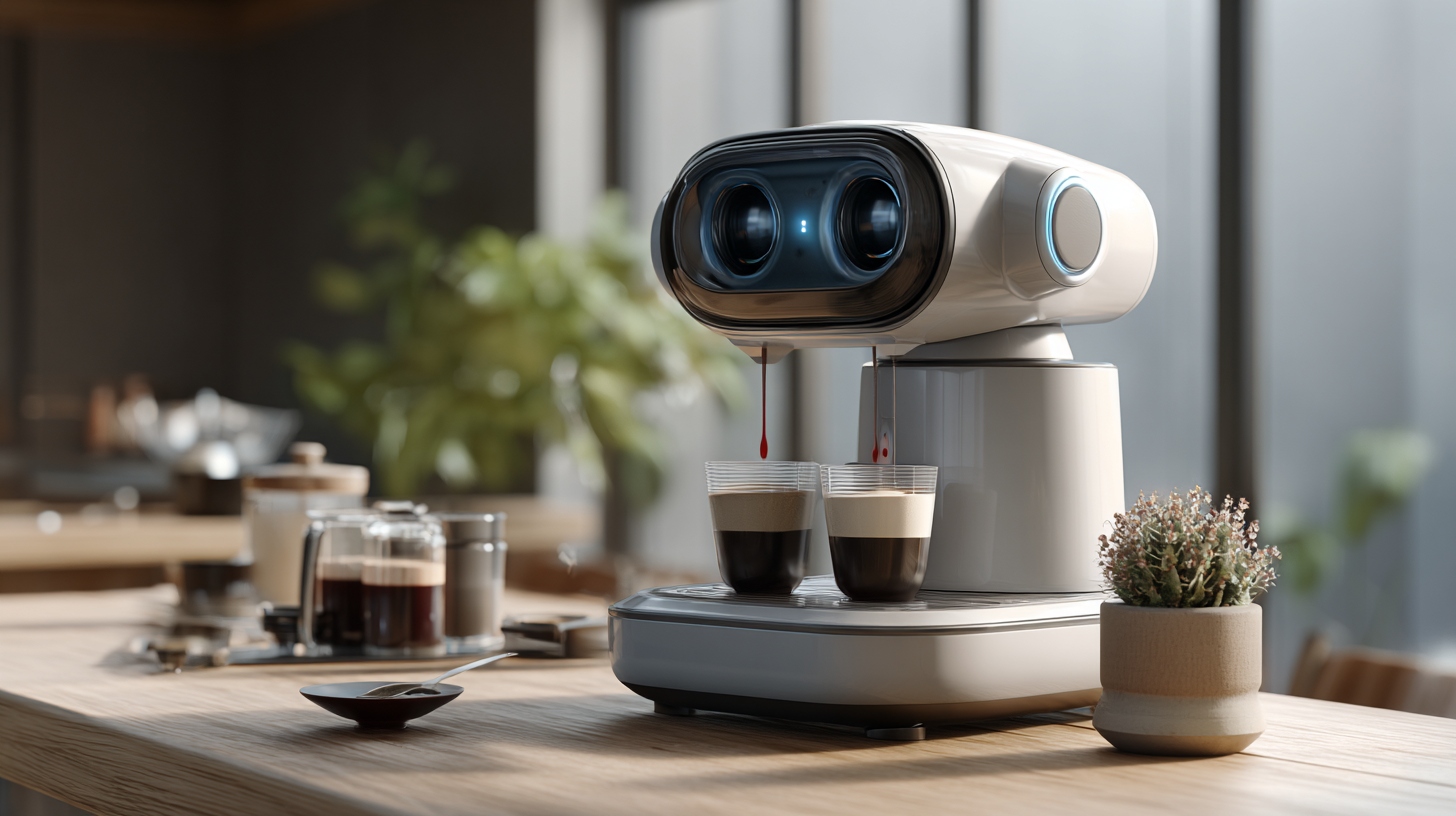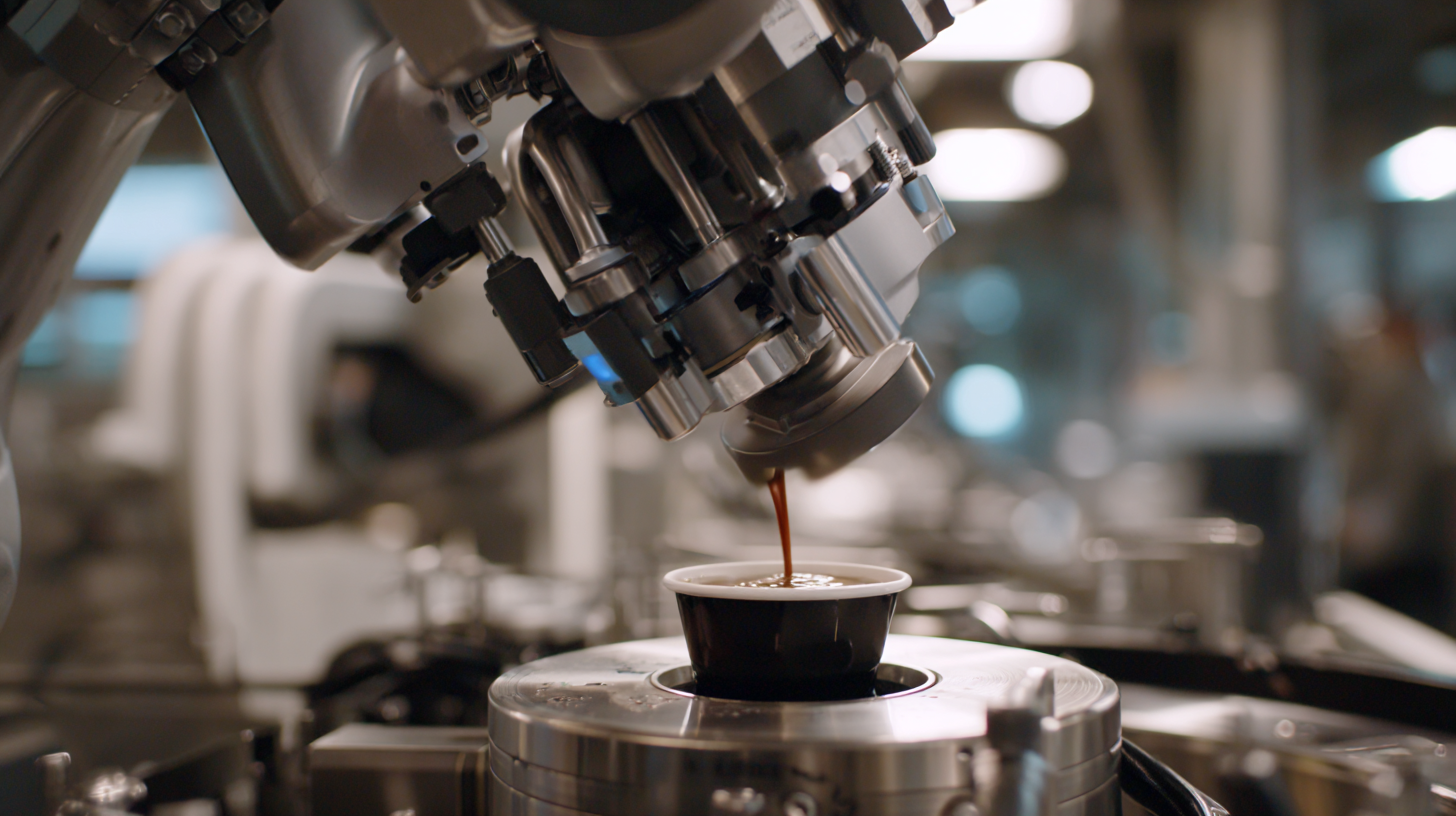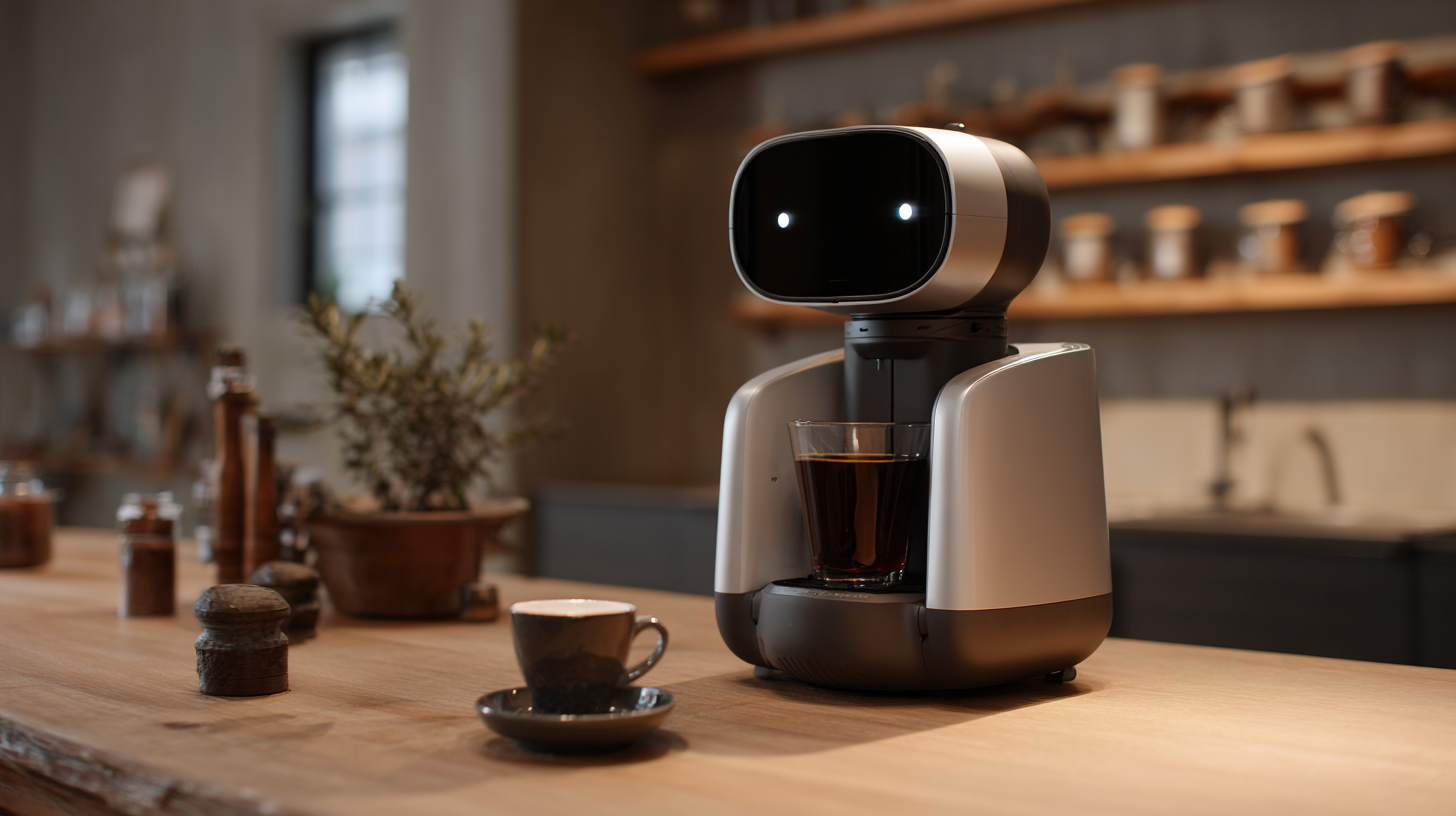Exploring the Future of Automated Brewing with Innovative Coffee Robots
The coffee industry is undergoing a remarkable transformation, driven by advancements in technology and changing consumer preferences. According to a report by the National Coffee Association, 62% of Americans now drink coffee daily, showing a consistent year-on-year growth in demand. In this context, the emergence of Coffee Robots represents a revolutionary shift in how coffee is prepared and consumed, offering new levels of convenience, consistency, and quality.
As automation technology continues to evolve, Coffee Robots are increasingly capable of delivering barista-level beverages with minimal human intervention. Research from MarketsandMarkets projects that the global coffee machine market, which includes automated brewing systems, is expected to reach $12.6 billion by 2025, growing at a CAGR of 6.4%. This growth highlights not only the rising interest in automated brewing solutions but also the potential for Coffee Robots to redefine customer experiences in cafés and homes alike.
Moreover, the integration of artificial intelligence in Coffee Robots is set to bring personalized coffee experiences to the forefront. By analyzing consumer preferences and utilizing data analytics, these robots can adapt brewing methods to meet individual tastes, ultimately enhancing consumer satisfaction. As the coffee sector embraces this wave of innovation, the potential of Coffee Robots to shape the future of brewing is undeniable, making it a fascinating area of exploration for both enthusiasts and industry professionals.

The Evolution of Coffee Brewing Technology: A Retrospective View
The journey of coffee brewing technology has been nothing short of fascinating. It has evolved from traditional methods that required meticulous attention and manual skill to the rise of automated machines that promise perfection with every cup. Early brewing techniques, such as stovetop espresso makers or pour-over methods, relied heavily on the barista's expertise. However, advancements in technology have introduced innovative solutions that integrate precision and convenience. As we look back, we can see how these changes have ushered in a new era of coffee appreciation, allowing enthusiasts to enjoy barista-quality brews in the comfort of their homes.
**Tip:** When exploring automated brewing machines, consider models that offer customizable settings to match your personal taste. This way, you can tailor the brew strength, temperature, and flavor profile to suit your preferences.
Today, coffee robots are at the forefront, using artificial intelligence and data analysis to craft the perfect brew every time. Not only do they simplify the process, but they also enhance consistency, ensuring that each cup meets high standards. The future of brewing seems to favor such innovations, helping to bridge the gap between traditional craftsmanship and modern convenience.
**Tip:** Always read reviews and ask for recommendations before investing in a coffee brewing robot. This will help ensure you choose a machine that is reliable, durable, and has a user-friendly interface.

Integrating AI and Machine Learning in Coffee Brewing Automation
As the coffee industry continually seeks ways to innovate, integrating AI and machine learning into automated brewing processes stands at the forefront of this transformation. Recent reports highlight that the global coffee market is expected to reach $102.15 billion by 2025, with a considerable portion of this growth driven by advancements in technology. AI-powered coffee robots can analyze hundreds of variables—from bean temperature to grind size—ensuring a perfectly brewed cup tailored to individual preferences. This level of precision not only enhances the customer experience but also maximizes efficiency in production.
Tips for coffee enthusiasts: When using automated brewing systems, always consider the freshness of your beans. The flavor profile changes dramatically with time, so for optimal results, purchase whole beans and grind them just before brewing. Additionally, take the time to calibrate your coffee robot according to your preferred brewing method, whether espresso, pour-over, or French press, as this will enhance the final taste.
Moreover, the integration of machine learning enables these coffee robots to learn and adapt over time, analyzing user feedback to refine their brewing methods. As these technologies become more widespread, consumers can expect an increasingly personalized and high-quality coffee experience. For those in the industry, embracing this trend may lead to greater market competitiveness and customer loyalty.

Design Innovations: How Coffee Robots are Changing Home Brewing
The rise of coffee robots is revolutionizing home brewing, introducing design innovations that maximize convenience and quality. Recent reports indicate that the global coffee machine market is expected to reach $15 billion by 2025, driven by advancements in automation and smart technologies. These innovations allow consumers to enjoy barista-like experiences at home. Coffee robots are equipped with exacting precision, ensuring the optimal brewing temperature and extraction time, thereby enhancing flavor profiles and overall user satisfaction.
Moreover, industry players are increasingly leveraging robotics to streamline the coffee-making process. For instance, automated systems that brew coffee and prepare other beverages are gaining traction in various settings, from upscale homes to cafes. Data shows that 60% of consumers appreciate the convenience of automated brewing methods, reflecting a significant shift in consumer behavior. With firms focusing on developing smarter coffee solutions, we can anticipate a surge in intuitive coffee machines that not only brew but also learn user preferences, aligning with the growing trend towards personalized experiences in home brewing.
User Experience: Interacting with the Next Generation of Coffee Robots
As the coffee culture continues to evolve, so does the technology that supports it. The rise of automated brewing systems has paved the way for innovative coffee robots, which not only streamline the coffee-making process but also enhance the user experience. According to a 2022 report by the Specialty Coffee Association, nearly 30% of coffee drinkers expressed interest in using automated brewing devices, highlighting a growing acceptance of technology in everyday routines.
The principle of user interaction is central to the development of these coffee robots. Modern designs focus on intuitive interfaces that allow users to customize their coffee preferences easily. A study from Market Research Future indicated that the global coffee machine market is expected to grow at a CAGR of 8.5% from 2023 to 2030, driven largely by innovations in user-friendly features and interactivity. Features such as smartphone connectivity, voice-command capabilities, and touch-screen controls ensure that the next generation of coffee robots will cater to the unique tastes of each user, providing a more personalized brewing experience.
Sustainability and Efficiency: The Green Benefits of Automated Brewing Solutions
As the coffee industry embraces innovation, automated brewing solutions are setting new standards for sustainability and efficiency. These advanced coffee robots utilize precise algorithms to reduce waste, ensuring that every bean is maximized for flavor and freshness. With the capacity to adjust brewing parameters in real-time, they help minimize energy consumption while delivering a consistently high-quality cup of coffee.
Moreover, automated brewing systems often incorporate eco-friendly practices, such as smart sourcing and filtering technologies that lower water usage and eliminate the need for disposable filters. By focusing on sustainable sourcing and responsible ingredient management, coffee robots not only enhance the brewing experience but also align with the growing consumer demand for environmentally conscious practices. This evolution in coffee preparation shows that automation can be a powerful ally in addressing the pressing challenges of climate change and resource efficiency in the beverage industry.
Automated Brewing Solutions: Sustainability and Efficiency Benefits
This chart illustrates the comparative benefits of automated brewing solutions over traditional brewing methods. It highlights key factors such as energy consumption, water usage, time savings, and waste reduction, demonstrating the sustainability and efficiency advantages of automated systems.

